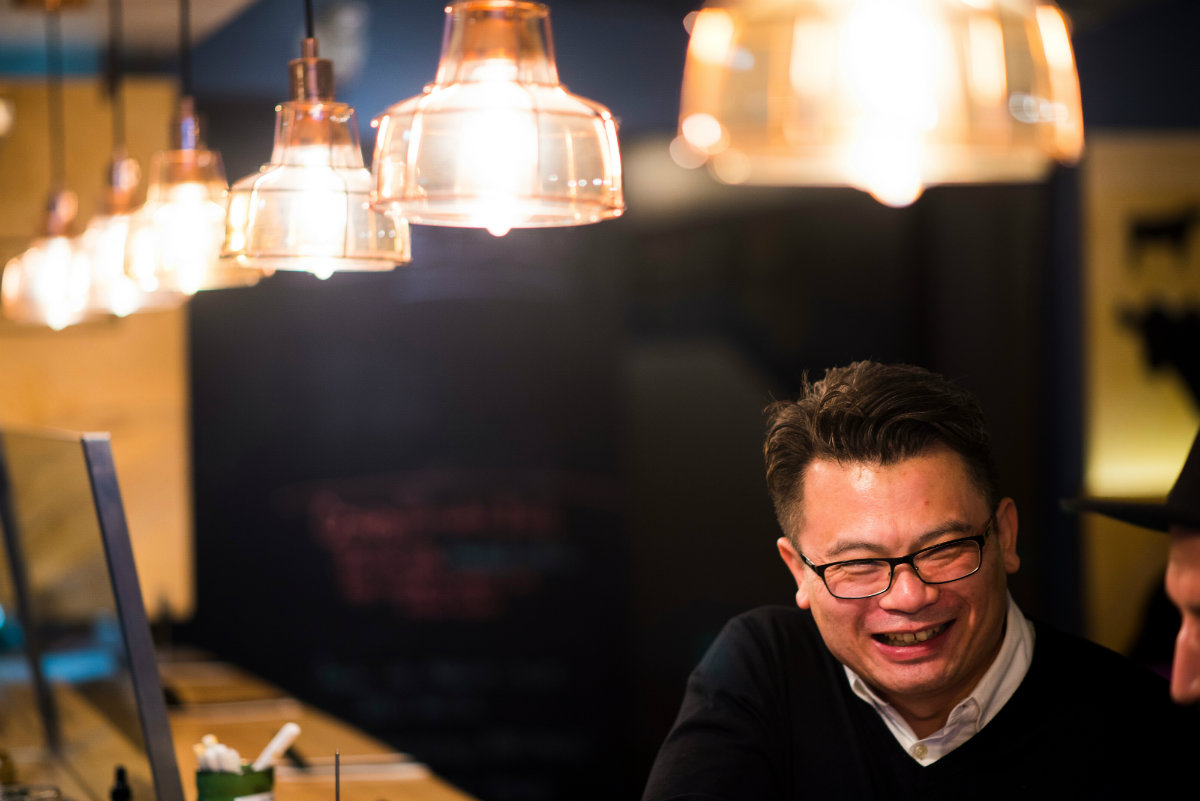
Arden Tse ('95 BSc)
It's arguable that when the average 17 or 18 year old begins a bachelor of science degree program, the path doesn't intuitively point the way to a career as an entrepreneur. Yet, here we hear from several scientists turned businesspeople who are channeling Douglas Adams' famous line: "I may not have gone where I intended to go, but I think I have ended up where I needed to be."
Arden Tse ('95 BSc) says a firm grounding in the scientific method set him up for business success. A former psychology major, Tse is now manager at University of Alberta Venture Mentoring Service, an initiative through the University of Alberta Alumni Association focused on developing alumni entrepreneurs. As a seasoned entrepreneur himself, Tse credits his science roots as allowing him to successfully navigate twists and turns along his professional path-from cruise casinos to real estate investment. All along, he has channeled his inner scientist with a quest for curiosity,never giving up on the search for answers, even when success is achieved.
"The value of studying science was learning how to think critically, do research, ask questions, and solve problems," Tse explains. "I didn't know it at the time, but my degree set a foundation for a career in finance and investment, and now that career has led me to the startup community. It's been quite an adventure."
"The value of studying science was learning how to think critically, do research, ask questions, and solve problems" -Arden Tse
Tse's latest adventure combines three of his passions: startups, friends, and ramen. Focused on infusing Albertan flavours into a Japanese tradition, Tse, along with an old friend and three of his fellow MBA grads-two of whom have a science background-opened Prairie Noodle Shop on Edmonton's flourishing 124th street in late 2015. With a nose for business and a palate primed for opportunity, Tse and his partners seized the moment and took a risk, one that's paying off in spades, one bowl at a time.
"We set out to create our own market, and it actually worked really well," beams Tse. "We've had a lot of people come in who have never tried ramen before who would not normally go to a Japanese ramen shop, but our shop is approachable and friendly. It's very Prairie."
Not one to let moss grow under his feet, what's next on Tse's plate to satisfy his entrepreneurial spirit?
"I've got that itch for always wanting to move forward and do something different. The entrepreneur in me is dying to bust out. I've got the restaurant on the side, but moving forward, I'm kind of unemployable. My goal in the next few years is to focus on Venture Mentoring Service (VMS) and build it into a strong and valuable program. After that, who knows. I can see myself running an investment fund or perhaps even helping run a company. I see my future more in the entrepreneurial or executive management role."
Tse credits the autonomy he has at VMS as providing something he can sink his teeth into, supporting the success of up-and-coming as well as experienced entrepreneurs and creating mentorship opportunities by facilitating relationships with mentors who have tread similar tracks.
No single formula for science entrepreneurship success
One such mentor is Tse's Prairie Noodle Shop partner Craig Milne ('98 BSc). Milne got his start in science studying zoology. Following his undergrad in physiology, a PhD at the University of Toronto in stem cell biology, and a return to the University of Alberta for an MBA, his connection to the Faculty of Science has come full circle: Milne is now consulting with faculty members to bring their business ideas to life. He's currently working with a dozen researchers at various stages in the business process-some with just an idea, others with already successful sales.
Milne says the value he adds as a consultant is honesty. "It's really important as an entrepreneur to have people who are honest with you, people who can help you, people who will tell you when you are wrong, kind of like family. I think that's one of the things that the faculty members really appreciate. I can be completely honest, because I have no vested interest. I don't represent any organization."
Milne sees incredible value for both the university and local economy in the creation of spinoffs, a belief shared by Dean Jonathan Schaeffer who has identified increasing the number of spinoffs as a strategic goal for the Faculty of Science. Benefits include funneling funding back into fundamental research, employment opportunities for students, increased investment in the province, and added prestige for the university.
As to what makes Alberta's capital city an ideal place to start a business, something creeping into common lore for Edmonton, Milne says there's no single formula for success. "I think we try harder in Edmonton. There's a bit of a little brother syndrome. If you're not in oil and gas, you've got to do something else. For the same reason, the government is trying to diversify the economy, so entrepreneurs get more support here too."
And as to what Milne thinks it is that makes scientists ideal entrepreneurs? "As a scientist, I learned two things: that I know very few answers, and that asking the right questions is the only way to get more answers. Most of my current efforts are about helping ask the right questions with entrepreneurs. The discovery process of finding the best answer for a given business is always unique and always fascinating."